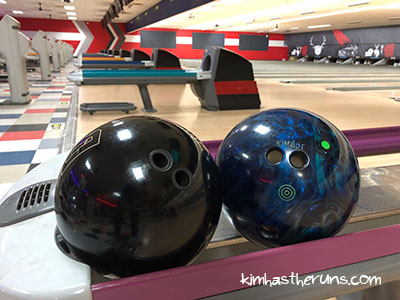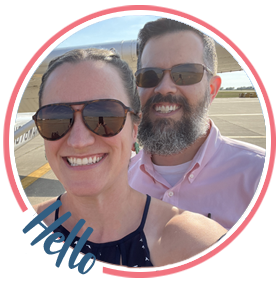Another a ha! (or, “duh!”?) moment!
Gosh, there are so many great ideas and practices in The Passion Paradox. I feel like there should be a workbook that comes with it. I’ve kind of been doing my own workbook on the side, as it is.
But anyway! I’m nearing the end of the book, and I’ve read about the origins of passion, how to find passion, the good and bad sides of passion, how “balance” and passion are incompatible, and now, the importance of self awareness in staying in control of your passions. The authors encourage using self awareness to check in on your passions to confirm you are “deliberately choosing if and how to pursue your passion; that you remain in control of your passion, and thus remain in control of your life” – that you don’t look back in five years and wish you would have spent your time (somewhat) differently.
They acknowledge in the previous chapter that there is not going to be “balance”* when you’re in the heat of being passionate about something. You’re going to be all in on it, in that moment. And that is totally fine, but you need to do these self checks to make sure you’re still in control and not turning in to a passion robot (ooo la la). And the problem with that, apparently, is that most people AREN’T self aware – close friends/family or even strangers may know them better than they know themselves. Fascinating! Anyway, let’s get to the point.
So they share some methods to build self awareness, and the first one is self-distancing – where you take yourself out of your personal situation by imagining a friend in that situation instead, or, by journaling about it, but in the third person. “Self-distancing practices… allow us to remove our emotional selves from highly charged situations, paving the way for more thoughtful insight and subsequent decision-making.” “Self-distancing helps us gain self-awareness by zooming out of our own selves and situations, even if only a little bit. It allows our more rational thinking brain to emerge and flex its muscle in circumstances that are laden with passion.”
Guys. I’ve heard all the time “treat yourself like you would a friend,” as in, be kind to yourself with self talk, but I have NEVER thought to think of the situations I am in in this manner! This is revolutionary for me! And so freaking obvious, but apparently not SUPER obvious, since they had to put it in a book. (Right? Right.)
I am emotionally charged and react quickly to things. I am forever trying to find methods to stop and THINK before I act. To breathe. To let logic lead the way. I’ve gotten better but am not where I want to be. I could see myself using this method, sure, for the whole passion thing, but also, just for life situations in general!
It was kind of awesome I read this last night, because I was feeling crappy about not spending time on my passion (running) yesterday. I was so tired after work (sleepy, not physically) and didn’t want to run. Steven asked if I wanted to go bowling and get dinner, and I said yes, but felt guilty for not working out. Buuuuuuuuuuuuuuuuut, one of the exact examples in this book regarding self-distancing is looking at your passion from a friend’s perspective and advising if they should push harder, or take a break. And if I had said to a friend “I feel like I could fall asleep right meow, should I go run or take the night off?” they’d say “take the night off.” Or maybe even “enjoy that time out, you’ll be happy you spent the time together.” (You know, instead of an hour+ running by myself.) And also “You aren’t training for anything, so it doesn’t matter, except for your mental health, so which one is better for that?”

Besides we had the bowling alley practically all to ourselves which was AWESOME!
So yeah. Self-distancing. Who knew? I am looking forward to reading the rest of the chapter and seeing what the other methods toward better self-awareness are. (I’ve been reading little bits of this book at a time, to soak it all in, and really process it. The self-distancing concept was such a whammy I really had to stop immediately after reading it last night (then reread it again this morning)!)
*They’re believers that balance happens over time (years), not each day, and that trying to balance each and every day doesn’t let us pursue our passions and makes us mediocre.


Great insight! You’re right, I remember in therapy talking about imagining friends in certain situations as a strategy to learn to be kinder to ourselves, but I never really thought about using it this way as well.
I am glad you see why it’s an “a ha!” moment for me (and that it is for you too)! And this totally seems like something a therapist should recommend, as a way to work through decision making, right? (Not just as a way to be kind to ourselves, which is a good method too)
Ooh, this makes a lot of sense. I feel like I had a similar “a-ha” moment reading this. I’m glad this point clicked for you. When do you think you’re most likely to use this “pretend it’s someone you know” advice?
I am glad you did too! I think I would use it the most with “people” problems and other random things making me anxious or mad. Like how would I advise a friend or would I tell them to chill?
Wow, that really does sound like a revolutionary – and very helpful – concept!
Sometimes when something is stressing me out, I think about what my husband would say to me (which is usually along the lines of “Just relax and wait, you don’t have to do anything just yet, it will work itself out.”). Not exactly the same thing but similar.
That is great advice and great that it comes to you when you need it! I could use that advice A LOT 😉 IT WILL WORK ITSELF OUT, KIM! 🙂
You are welcome to channel my husband’s Yoda-like words of wisdom any time you need to – LOL!
I’m definitely going to have to read this book because the insights are spot on! I love the idea of viewing something as if a friend is in the situation, not you. We are usually so much kinder and more forgiving for our friends than we are for ourselves. Thanks for sharing!
Yes, let me know what you think of it if you read it! At first I was like “I have no passions why am I reading this?!” but I found a lot of it applicable to many parts of life (and of course, and made me realize I have more passions than I thought). You’re welcome! 🙂